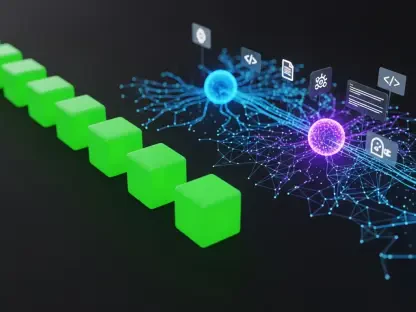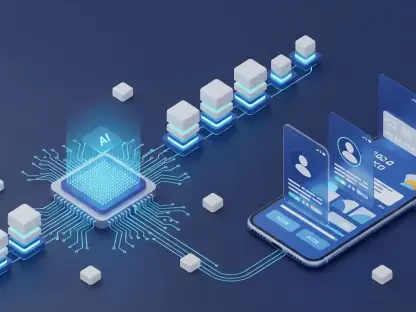In an era where coding efficiency can make or break a project, over 70% of developers now rely on AI tools to streamline their workflows, according to recent industry surveys, highlighting a pressing challenge of finding reliable, cost-effective solutions that don’t compromise on quality. With budgets often tight for independent coders and small teams, free AI coding assistants have become a lifeline. This roundup dives into the landscape of no-cost AI tools for programming, gathering insights and opinions from various tech communities, forums, and expert analyses to pinpoint which options truly deliver for developers tackling diverse challenges.
Unlocking the Power of Free AI in Programming
The realm of AI-driven coding support has evolved rapidly, offering developers an array of free tools that promise to enhance productivity without draining financial resources. Community discussions on platforms frequented by programmers reveal growing excitement around how these tools can handle tasks like code generation and debugging. Many note that accessibility remains a key driver, enabling hobbyists and professionals alike to experiment with cutting-edge technology.
A significant trend shaping opinions is the increasing integration of AI into everyday development environments. Forums are abuzz with stories of coders leveraging free chatbots to cut down on repetitive tasks, underscoring their importance in democratizing tech innovation. This reliance is seen as a game-changer for those who might otherwise be excluded due to cost barriers.
Teasing the detailed exploration ahead, this analysis compiles diverse perspectives on a select group of free AI chatbots that have garnered praise for their performance in rigorous programming tests. The focus remains on sifting through community feedback and expert evaluations to highlight tools that stand out in real-world scenarios, setting the stage for a deeper dive into their capabilities.
Breaking Down the Best Free AI Coding Assistants
Top Performers Under the Microscope
Among the plethora of free AI tools, Microsoft Copilot, ChatGPT, and DeepSeek consistently emerge as frontrunners in developer discussions and performance reviews across tech blogs. Standardized coding tests, as shared in various online communities, show Copilot achieving flawless results in tasks from plugin creation to complex scripting. Many developers commend its reliability for delivering accurate code snippets under pressure.
ChatGPT also garners significant praise for its quick responses and user-friendly interface, often highlighted in forum threads for passing most coding challenges with minor hiccups. DeepSeek, though less discussed, gains traction for unique UI features that enhance usability, with some coders noting its functional output in design-focused tasks. Performance data circulating in tech circles often points to these tools as benchmarks for free-tier excellence.
However, not all feedback is glowing. A recurring concern among users is the occasional inaccuracy in generated code, sparking debates on whether free tools can match paid alternatives for intricate projects. Some seasoned programmers argue that while these top performers shine in standard scenarios, limitations surface in niche or highly specialized coding needs, prompting a cautious approach.
Gaps and Struggles of Lesser-Known Contenders
Shifting attention to lesser-known free AI chatbots like Claude, Meta AI, and Google Gemini, community reviews paint a less favorable picture. Many developers express frustration over inconsistent results, with examples like Gemini’s frequent errors in code generation becoming a common complaint in coding subreddits. These tools often fail to meet expectations in diverse programming challenges, as noted in shared test outcomes.
Practical experiences shared online reveal struggles in everyday use, such as Meta AI’s clunky interface and Claude’s tendency to overcomplicate simple tasks. These shortcomings are often cited as deterrents by coders who prioritize efficiency in fast-paced environments. The consensus leans toward viewing these options as supplementary rather than primary aids.
Risks of depending on underperforming tools are a hot topic, with many highlighting productivity losses due to usability issues like mandatory logins or erratic outputs. Discussions often weigh the competitive disadvantage these chatbots pose against more robust free alternatives, suggesting that developers might waste valuable time troubleshooting rather than creating.
Emerging Patterns in AI Coding Support
Looking at broader shifts, tech communities are abuzz with observations on how free AI tools are advancing in user interface design and workflow integration despite their no-cost status. Recent posts on programming boards point to innovations that make these tools more intuitive, even as they lag behind premium versions in raw power. This evolution is seen as a promising sign for wider adoption.
Performance variations based on task complexity or specific coding domains are frequently debated, with some users noting that free tools excel in straightforward scripts but falter in specialized languages. Global usage trends, as reflected in developer surveys, suggest that demand for tailored features could drive future enhancements, potentially narrowing gaps with paid counterparts.
Challenging the assumption that free AI tools are inherently inferior, many contributors in online discussions advocate for strategic usage to maximize their potential. Tips shared include pairing these tools with manual oversight to offset weaknesses, offering a fresh angle on leveraging limited resources effectively in professional settings.
Navigating Accessibility and Usability Barriers
Delving into user experience, a common thread in coder feedback is the frustration with barriers like usage quotas and delayed responses in free AI tools. Reviews often critique restrictive models, such as Grok’s limited Expert Mode access, contrasting them with more seamless options like ChatGPT’s accessible app interface. These pain points significantly impact daily usability.
Comparisons across platforms highlight disparities in ease of access, with some tools requiring cumbersome logins that deter quick adoption. Speculation in community threads suggests that user-driven feedback could push for improvements in responsiveness and flexibility, enhancing practicality for developers in the near term.
Adding depth to performance evaluations, this focus on accessibility underscores how practical considerations influence tool selection. Many developers stress that a balance between robust functionality and ease of use is critical, advocating for tools that minimize friction while still delivering on core coding needs.
Key Insights and Practical Guidance for Developers
Synthesizing community insights, Microsoft Copilot, ChatGPT, and DeepSeek stand out as the preferred free AI tools for coding, lauded for their strengths across varied tasks. Tech forums consistently highlight Copilot’s unmatched consistency, while ChatGPT’s versatility and DeepSeek’s UI innovations earn frequent mentions as reliable options for budget-conscious coders.
Actionable advice circulating among developers includes combining multiple free tools for cross-verification to catch errors early. Another widely shared tip is the importance of validating AI-generated code manually, ensuring accuracy before deployment. These strategies help mitigate the inherent risks of relying solely on automated outputs.
For integration into daily workflows, suggestions from experienced users focus on mapping specific tools to particular tasks—such as using Copilot for complex scripting and ChatGPT for rapid prototyping. This tailored approach, often discussed in online meetups, aims to boost productivity without incurring subscription costs, empowering developers to maximize available resources.
The Future of Free AI in Coding and Beyond
Reflecting on the critical role of accessible AI tools, this roundup captures a spectrum of views on how they shape programming landscapes. Performance disparities and user experience challenges are thoroughly debated, revealing both the potential and the pitfalls of no-cost solutions in a competitive tech environment.
The ongoing relevance of free AI coding assistants is a central theme, with many acknowledging their value even as technology advances at a brisk pace. Discussions hint at potential enhancements that might emerge, alongside concerns about widening gaps with paid plans that could alter accessibility dynamics.
A compelling nudge for developers comes from the collective wisdom shared across sources, urging them to experiment with top free tools like Copilot and ChatGPT. Staying proactive by testing outputs, remaining vigilant for errors, and anticipating game-changing updates are seen as vital steps to stay ahead in an ever-evolving field.









